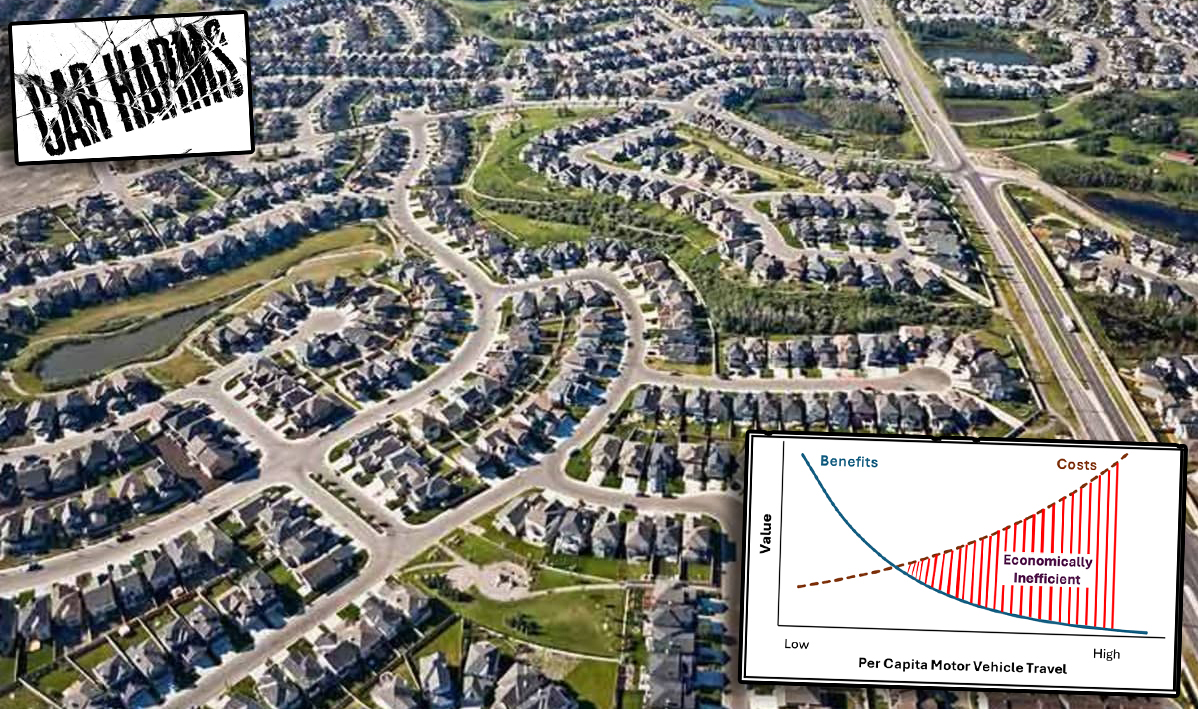
"Conventional planning claims that wider roads, more parking and cheaper gasoline stimulates economic productivity, employment, incomes, economic opportunity and tax revenue. These assumptions could not be more wrong."
"Some vehicle travel is very productive, but a growing portion is economically inefficient - its costs exceed its benefits. This reduces prosperity."
"The Mobility-Productivity Paradox investigates the negative relationship between mobility and productivity, proving a decline in productivity as vehicle travel increases."
"Policies that encourage compact development increase productivity, while those that encourage sprawl are economically harmful."
This article highlights the detrimental impacts of automobile dependency and urban sprawl on economic productivity. It argues against conventional planning assumptions that suggest wider roads and more parking foster economic growth. Instead, the author presents new research, termed The Mobility-Productivity Paradox, which reveals a negative correlation between vehicle mileage and productivity. The findings advocate for compact urban development as a means to enhance productivity, suggesting that the current model of sprawl not only harms the environment but also undermines economic prosperity.
#urban-development #economic-impact #automobile-dependency #mobility-productivity-paradox #urban-planning
Read at Streetsblog
Unable to calculate read time
Collection
[
|
...
]